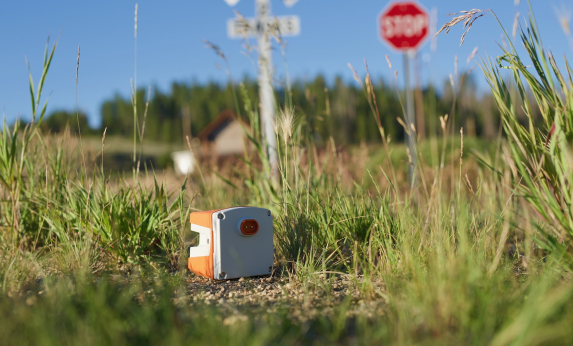Challenges with traditional sensors
Geophones are complex mechanical devices manufactured using a range of materials; metal alloys (spring, coil, housing), plastics (outer case), rare earth material (magnet). The properties of these materials are subject to ageing during their lifetimes (spring creeping/hardening, demagnetization) and drift due to thermal changes (coil resistance, spring stiffness, etc).
Geophone sensitivity is mainly determined by the spring stiffness, electromagnetic field induced by the permanent magnet, and the coil mass. All of these parameters are subject to ageing, drift and manufacturing tolerance.
While the undisputable advantage of piezo sensors for seismic acquisition remains their very low-cost, it however goes along with much lesser sensing performances. This sensing technology is indeed subject not only to data jitter, but also to high levels of distortion that prove very difficult to mitigate, even with a state-of-the-art processing.
Smarter engineering and design with our MEMS technology
Sercel MEMS accelerometers are fabricated using a 100% silicon substrate, a material known for its stability, immunity to ageing and minimal thermally induced drift of its mechanical or electrical properties. The sensitivity of Sercel’s QuietSeis® sensors (closed loop MEMS accelerometer) is in fact only determined by the silicon electrode size (manufactured using techniques similar to those used in microelectronics with submicron tolerances) and by the applied voltage that can be set with extremely high degrees of accuracy.
Sensor related data jitter is therefore a phenomenon observed in geophones and piezo sensors, being especially evident in low-frequency geophones. Amplitude and phase data jitter will affect the full seismic frequency band, but are particularly pronounced at lower frequencies.
It’s the clear choice
Sercel now offers the world’s best wireless seismic land acquisition product with the introduction of the WiNG land nodal system. This revolutionary, broadband nodal solution offers many technological advantages to other seismic sensors and other inferior analog systems. Sercel’s WiNG land nodal solution provides users with unmatched confidence through enhanced data fidelity, active feedback through real-time QC, and a robust feature set to deliver smart and reliable data, no matter the conditions.
Contact us today to capture accurate data with no jitter, distortion or noise. WiNG provides the best image quality in the industry while reducing environmental impact, reducing risk, and increasing productivity.

